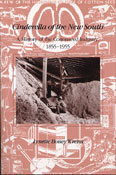Cinderella of the New South
A History of the Cottonseed Industry, 1855-1955

- Author(s): Wrenn, Lynette Boney
- Series:
- Imprint: Univ Tennessee Press
- Publication Date: 1995-08-31
- Status: Active
- Available in Hardcover - Cloth: Price $38.00 | Buy Now
For decades after the Civil War, the cottonseed industry played a critical role in the economy of the American South—an importance that previous historical accounts of the region have barely acknowledged. In Cinderella of the New South, Lynette Boney Wrenn fills a major gap in scholarship by tracing the story of the cottonseed industry from its antebellum origins through its transformation during the first half of the twentieth century.
A byproduct of cotton ginning, cottonseed was at first thought to be little more than a nuisance. Only a fraction of the seed produced was necessary for planting; what remained seemed to be useful only for fertilizer or cattle feed. Starting in the mid–1850s, however, entrepreneurs began to convert this plentiful waste into a range of marketable commodities. By the turn of the century, soap and shortening manufacturers were demanding so much cottonseed oil that “oil mills” spread throughout the South by the hundreds. The once lowly cottonseed had truly become an “economic Cinderella” that paid for ginning, baling, and harvesting the cotton crop and put money into the pockets of farmers, ginners, bankers, and merchants.
In the twentieth century, a succession of factors steadily weakened the industry. These included antitrust suits that diluted the advantages cottonseed processors had once enjoyed in the marketplace, as well as actions by the federal government, which, ironically, was first seen as a potential savior for the industry. The effects of New Deal legislation were especially profound. Cotton acreage restrictions, for example, ultimately limited seed production, while soil conservation measures encouraged soybean cultivation. Eventually, the oil mills that had once dotted the region were reduced to a few large factories, and soybeans had replaced cottonseed as the country’s principle source of vegetable oil and meal.
Meticulously researched, this book not only chronicles the workings and fortunes of a single industry but offers valuable new insights into the larger issues of economic and agricultural history.
The Author: Lynette Boney Wrenn is an independent scholar who lives in Memphis, Tennessee.
